- Massaging the truth - 27th February 2026
- ‘It’s the new economy, stupid…’ - 27th February 2026
- Eyes right… - 26th February 2026

During a 40 year career as a journalist, for our Editor Phil Parry spotting growing trends has always been paramount, and now this is underlined by ever more evidence emerging (and books being written) about the strong links between major UK institutions, including some in Wales, and the slave trade.
More and more is coming out, and the evidence is sickening.

Many of those who have identified the links with slavery have endured terrible abuse online (even death threats), when all they are doing is reporting FACTS.
Those people have my support because I, too, have suffered appalling comments online after writing factual stories, which many (it appears) do not like.
It is, for example, known, and becoming even better known today, that some wealth in Wales comes on the backs of slaves.
A few may think we should keep quiet about this repugnant fact, but I don’t. Sterling work has been done in the book Slave Wales in exposing the slavery links, but they haven’t exactly been shouted from the roof tops!
Penrhyn Castle in North Wales and the Pennant family are two disturbing cases.

Gifford Pennant was originally from Flintshire, and obtained land in Jamaica in the latter part of the 17th century, where he made his fortune.
By the 1700s, the Pennant family returned to the UK and Richard Pennant (1739-1808), who was the 1st Baron of Penrhyn, was controlling the family’s Jamaican properties remotely, and by 1805 he owned nearly 1,000 enslaved people across four plantations in Jamaica.
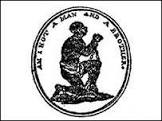

In letters, he referred to slaves as “chattel” and grouped them with cattle as his possession.
He then became an MP for Liverpool, which at the time was a major slave trade port, and used his powers to speak in the House of Commons (HoC) against the abolition of the slave trade, and he firmly denied that the transportation for enslaved Africans across the Atlantic was cruel. It is estimated that between 10-30 per cent of those transported died on the journey.
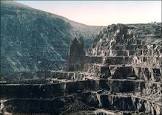
With the abolition of slavery, the Pennant family received around £14,683 (estimated to be about £1.3 million today) in compensation for the freeing of 764 enslaved people in Jamaica.
Money from Jamaica paid for roads, railways, houses, and schools in North Wales, as well as Penrhyn Quarry in Bethesda – once the largest slate quarry in the world.
His grandfather was, at one time, Liverpool’s biggest slave trader. His grandson was so embarrassed by his connections to slavery that he wrote it out of his family history..
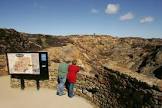
But that’s not all
For a time, the supply of copper was dominated by the mines at Parys Mountain in Amlwch, and its owner, Thomas Williams, who was born in 1737 in Llansadwrn, invested £70,000 in the copper trade and petitioned Parliament in 1788 against a bill to prevent British ships from carrying slaves.
Copper works were built in Flint and Penclawdd in Swansea to make copper and brass products, and many of these materials were actually for use in the African slave trade.
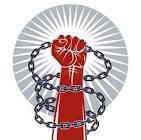
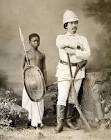
Details like this have come as other worrying information has been revealed
The statue to the Denbigh-born explorer HM Stanley was erected in his home town less than 10 years ago and faced criticism at the time, because he supported slavery.
The Elihu Yale pub in Wrexham also has a dubious history, with it being named after a man who was a noted slave trader in the 18th century.
Trip Advisor says about it: “This is a town centre pub that is popular with daytime drinkers. It has cheap beer and cheap food and cheap drunken people. You’ll survive the experience”.

But four years ago the BBC stated: “A pub named after a man linked to the 17th Century slave trade could be renamed following public pressure.
“Wrexham’s Elihu Yale pub is at the centre of the issue after a petition said people connected with slavery should not be commemorated.”
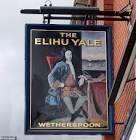
Yale joined his father’s firm and later entered the service of the East India Company as a clerk and played a major role in its Indian Ocean slave trading.
Now all of this has been underlined by the book Empireworld – How British Imperialism Has Shaped the Globe.
Its author, journalist Sathnan Sanghera, was at the Hay Festival this year talking about the abuse he has had to put up with.
He has written that after he wrote about empire: “…racist abuse ingrained itself into my daily existence, becoming as commonplace as my morning bowl of porridge”.
Sometime he has even had to call the police.

I would never claim to be in his league, but I, too, have been a target.
In the past I have been accused online (incorrectly) of being a “bastard” (many times), an “anti-devolutionist wanker”, “pure scum”, a “liar” (also many times) a “little git”, and (correctly) a “nosey git”, “irritating”, or a “nuisance”. But these remarks come amid many others. Too many, in fact, to mention.
A Marc Winchester said on Twitter/X, in a tweet which has since been deleted: “I’ll whack him (me)“, and the definition of the verb ‘to whack’ in the Urban Dictionary is: “to murder someone”.
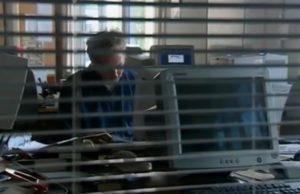
Sometimes, unfortunately, truth hurts – and it isn’t just Mr Sanghera and me who feel the pain…
The memories of Phil’s decades long award-winning career in journalism (when abuse was fairly rare at the beginning) as he was gripped by the incurable neurological condition, Hereditary Spastic Paraplegia (HSP), have been released in a major book ‘A GOOD STORY’. Order it now!

Publication of another book, however, was refused, because it was to have included names.











